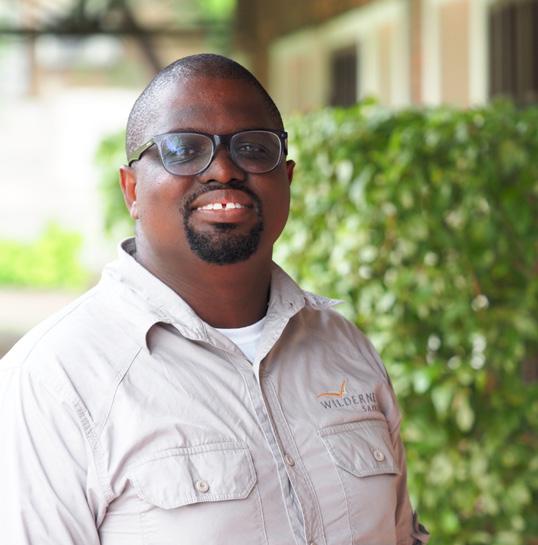
2 minute read
Children In The Wilderness Empowering Girls Through STEM
By Chedza Mmolawa
Children in the Wilderness (CITW) is a non-profit organisation supported by ecotourism company Okavango Wilderness Safaris, which aims to facilitate sustainable conservation through leadership development and education of children in Africa. It has been operating in Botswana since the inception of its program in 2001. The Children in the Wilderness program is an environmental and life skills program for children, focusing on the next generation of decision-makers, inspiring them to care for their natural heritage and become the custodians of these areas in the future. It runs eight Ecotourism-Clubs in the
Advertisement
North of the country around the Okavango Delta and
Maun area.
Thanks to the funds raised by the annual Nedbank Tour de Tuli mountain bike event, which takes place in the Greater Mapungubwe Transfrontier
Conservation Area (GMTFCA) and contributors like the United States (U.S.) Embassy of Botswana,
Children of the Wilderness, can run its life-changing program in villages in Botswana, South Africa, and Zimbabwe surrounding the GMTFCA. And in
December 2021, the organisation held a week-long science camp under the theme, 'Conservation Science Camp for Girls in Rural Areas.'
PROJECT IMPACT AND IMPLEMENTATION PROCESS According to the program coordinator, Moalosi Lebekwe, the 5-day camp hosted 60 girls who participated in interactive talks, discussions, and practical activities focusing on nature, biodiversity, and conservation of their immediate environment using scientific methods to conduct mini-research and investigations. Activities included career, life skills, leadership talks, team projects, and nature walks. The camp was coordinated and run by a women majority team of experienced ecologists, scientists, conservationists, sociologists, and educators who will mentor the girls and address other challenges the girls may face on their path to recognizing their potential.
At each school term break, two camps are implemented to specifically focus on providing girls in rural areas with practical experiences and knowledge related to environmental education and STEM-based skills. This past year, the camps were part of a one-year project funded by the U.S. Embassy in Botswana and aimed at encouraging and empowering Form 3 girls from Ngambao Junior Secondary School in Seronga. Lebekwe added that the longterm goal of the camp and project is that the participants will continue into environmental and STEM-based tertiary degree programs in their career trajectories.
SOCIAL DEVELOPMENT THROUGH THE U.S. EMBASSY The Chief of Mission of the U.S. Embassy endeavours to make United States policies better known and understood in Botswana. The Embassy consistently works with underdeveloped communities in Botswana to empower its citizens, help with poverty eradication, and play a significant role in bettering the lives of ordinary Batswana, which includes facilitating social development programs that have changed the lives of many citizens in the country. One of its projects is working with young girls and women in Botswana; the CITW STEM project is a personification of what the U.S. Embassy represents to the people of Botswana.
CITW Project Manager Moalosi Lebekwe










